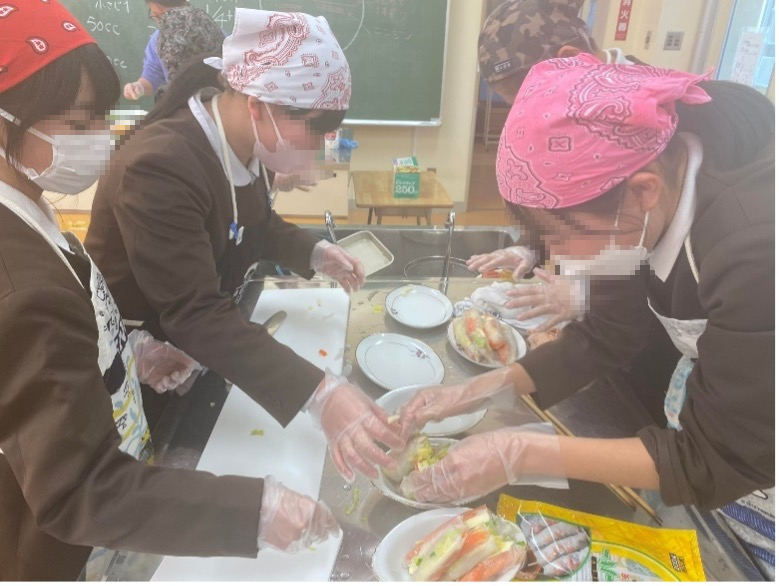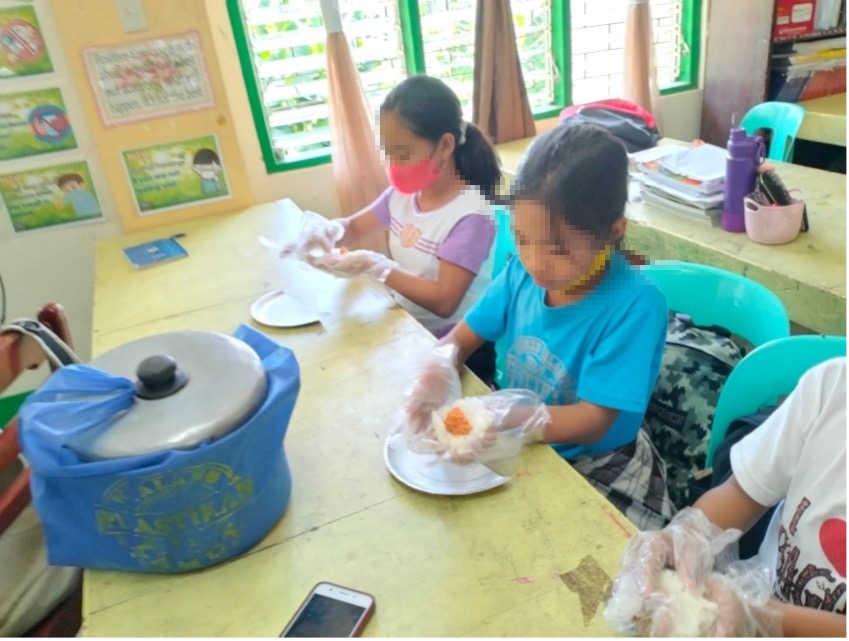2023/3/6
The Noto SDGs Lab, the Ifugao State University GIAHS Center, and the United Nations University OUIK collaborated to conduct the third session of an online international exchange program aimed at deepening learning and interactions between children from Noto and Ifugao (Philippines), both recognized as Globally Important Agricultural Heritage Systems (GIAHS). This session took place on March 6, 2022.
The theme for this session was “Food and Cooking.” The goal was for participants to cook and share dishes from each other’s regions, thereby learning about their cultures through their senses. Ifugao prepared Japanese ingredients, while Noto sourced Filipino ingredients, allowing the children to experience cooking prior to the exchange.
In Ifugao, the dish introduced by Mr. Silvester from Lamut Central School was “Fresh Spring Rolls.” The recipe featured tropical ingredients like mango and calamansi (a citrus fruit) that are characteristic of Filipino cuisine. Due to allergy concerns, mango was omitted, and the vegetables needed to be lightly boiled. Despite these adjustments, the children from Masuin Elementary School were excited to create fresh spring rolls for the first time, asking questions like, “Do we peel the vegetables?” and “How do we roll them up perfectly?” They worked together in groups to successfully complete their rolls!

Children in Ifugao making onigiri before the exchange (Photo credits: IFSU).
Masuin Elementary School introduced “Onigiri” (rice balls). The students filmed themselves cooking rice and making onigiri, sharing the video with the children in Ifugao, who then followed the instructions to make it themselves. Instant miso soup was also prepared to accompany the onigiri.
Once both schools were ready, the exchange began. The children from Masuin Elementary School were thrilled to see the onigiri laid out on the desks of their Ifugao peers. After sharing their creations, it was finally time to eat!
After tasting the dishes, the Masuin students shared their thoughts: “It was delicious!” and “The fresh spring rolls didn’t have much flavor on their own, but with the sauce, they were really tasty,” reflected many, including several who were trying fresh spring rolls for the first time. Children from Ifugao commented, “The onigiri and miso soup were delicious!” and “The pickled plum was sour!” They expressed surprise and enjoyment regarding the unfamiliar foods.

Observing the children from Ifugao as they share their thoughts on the onigiri and miso soup
Next, the students exchanged information about traditional foods eaten during local celebrations. The Masuin students introduced dishes such as “Ozouni” (mochi soup for New Year’s), the luxurious foods enjoyed at festivals, “Sekihan” (red rice for celebrations), and “Kohakumanju” (steamed buns for graduations and entrance ceremonies). Ifugao students shared that “We make pasta during Christmas” and “We also roast a whole pig for festivals.” Mr. Silvester noted, “In Filipino celebrations, there is often a focus on delicious food, but I feel that in Japan, there’s a deeper understanding of the significance behind the food that we can learn from.”
As this was the final exchange of the fiscal year, everyone gathered for a commemorative photo to conclude the session. The third exchange flew by, filled with enthusiastic questions and earnest attempts to communicate in English. Through this experience, the children were able to share their local culture and gain insights into the lives of their peers in distant regions, helping them reconfirm the unique charm of their own hometown.





